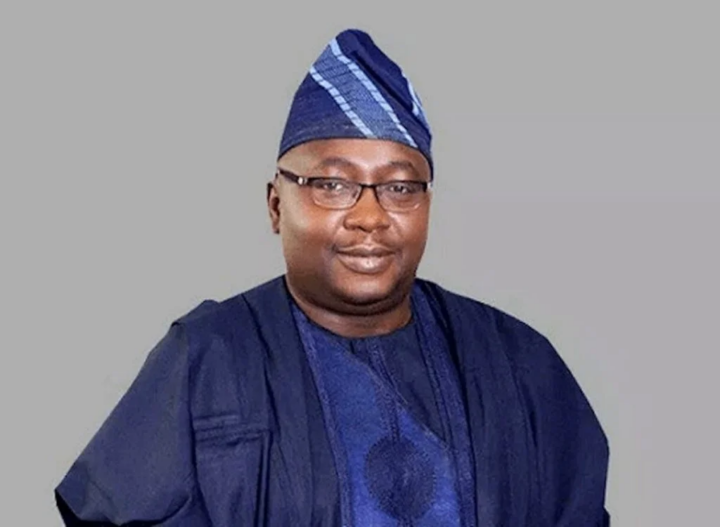The Federal Government has announced plans to revoke the operating licences of electricity distribution companies (DisCos) that fail to meet performance benchmarks by 2028, signaling a major shift toward accountability and efficiency in Nigeria’s power sector. The announcement, made through the Minister of Power, Chief Adebayo Adelabu, comes amid growing concerns over the persistent challenges of poor electricity supply, billing inefficiencies, and technical losses across several distribution zones.
Chief Adelabu, speaking during a media briefing in Abuja, explained that the federal government would no longer tolerate inefficiency or complacency among the DisCos. He said that each company’s licence renewal in 2028 would be based strictly on verifiable performance metrics, including energy delivery, customer service, infrastructure investments, and financial transparency. “We are putting the DisCos on notice — any company that fails to deliver measurable improvements by 2028 will have its licence withdrawn and reallocated to a competent operator,” he stated.

The minister noted that the decision followed a comprehensive review of the performance of the eleven DisCos since the power sector’s privatization in 2013. According to him, while some companies have made progress in expanding access and improving service delivery, others have consistently failed to meet contractual obligations and technical benchmarks outlined by the Nigerian Electricity Regulatory Commission (NERC). He emphasized that the federal government, through NERC, would enforce strict monitoring and evaluation of each DisCo’s operations over the next three years.
Adelabu said the ministry has already commenced sector-wide performance audits to assess the operational health of all DisCos. The audits will focus on critical indicators such as customer metering coverage, energy losses, distribution infrastructure maintenance, and revenue collection efficiency. “Our goal is to ensure that only credible and technically sound operators remain in the distribution space. Nigerians deserve a power system that works — one that supports economic growth and improves quality of life,” he added.
Sources within the power ministry disclosed that the move forms part of a broader reform strategy designed to reposition the electricity sector for long-term sustainability. The initiative aligns with the government’s Power Sector Recovery Programme (PSRP) and its new Electricity Act, which grants NERC more authority to regulate, sanction, or replace non-performing operators. The plan is also aimed at attracting private sector investment and restoring confidence in the power industry, which has struggled with liquidity crises and low investor morale.
Currently, Nigeria’s power generation capacity stands at around 12,500 megawatts, but less than 5,000 megawatts are effectively distributed to end-users due to poor transmission and distribution infrastructure. Consumers across the country continue to face erratic supply, frequent power outages, and inflated estimated bills. Analysts say the government’s decision to enforce stricter compliance could mark a turning point if followed through transparently and consistently.
The Minister of Power further revealed that several DisCos have already been issued performance warning letters by NERC, urging them to improve or risk sanctions. He noted that the federal government would collaborate with state governments and private investors to ensure that competent operators replace any revoked DisCo licences. “We will not allow electricity consumers to continue suffering under inefficient distribution networks. The time has come for full accountability in the sector,” Adelabu said.
The new regulatory stance has been met with mixed reactions. Some industry stakeholders welcomed the move, describing it as long overdue. They argue that poor service delivery by some DisCos has crippled businesses and discouraged industrialization in several regions. “If the government can implement this plan without political interference, it could finally bring relief to millions of Nigerians,” said Dr. Michael Umeh, an energy analyst. Others, however, cautioned that revoking licences must be handled carefully to avoid disrupting supply and investor confidence.
Consumer advocacy groups, including the Electricity Consumers Association of Nigeria (ECAN), have urged NERC to ensure that the performance evaluation process remains transparent and objective. The group also called on the government to strengthen oversight and ensure that new operators, where replacements are necessary, possess the technical capacity and financial resources to manage large-scale electricity distribution effectively.
The government has also reiterated that reforms in the sector would prioritize metering and customer engagement. According to the minister, the new National Mass Metering Programme (NMMP) Phase II will be accelerated to eliminate estimated billing and enhance revenue assurance for both DisCos and regulators. He noted that the government is already working with international partners, including the World Bank, to support infrastructure upgrades and capacity building.
Meanwhile, some DisCos have expressed willingness to cooperate with the federal government’s reform agenda. In separate statements, a few operators acknowledged existing challenges but attributed their inefficiencies to legacy debts, inadequate infrastructure, and high operational costs. They appealed to the government to address systemic bottlenecks in the transmission segment and ensure timely settlement of electricity subsidies to maintain liquidity in the value chain.
In conclusion, the federal government’s decision to set a 2028 deadline for evaluating and possibly revoking the licences of underperforming DisCos signals a renewed determination to enforce accountability in Nigeria’s electricity sector. While stakeholders agree that the policy could drive efficiency and attract new investments, its success will depend on transparent implementation, strong regulatory oversight, and political will. For millions of Nigerians yearning for stable and affordable power supply, this development offers cautious optimism — provided the government follows through on its promises to prioritize performance and protect consumer interests.
Support InfoStride News' Credible Journalism: Only credible journalism can guarantee a fair, accountable and transparent society, including democracy and government. It involves a lot of efforts and money. We need your support. Click here to Donate
